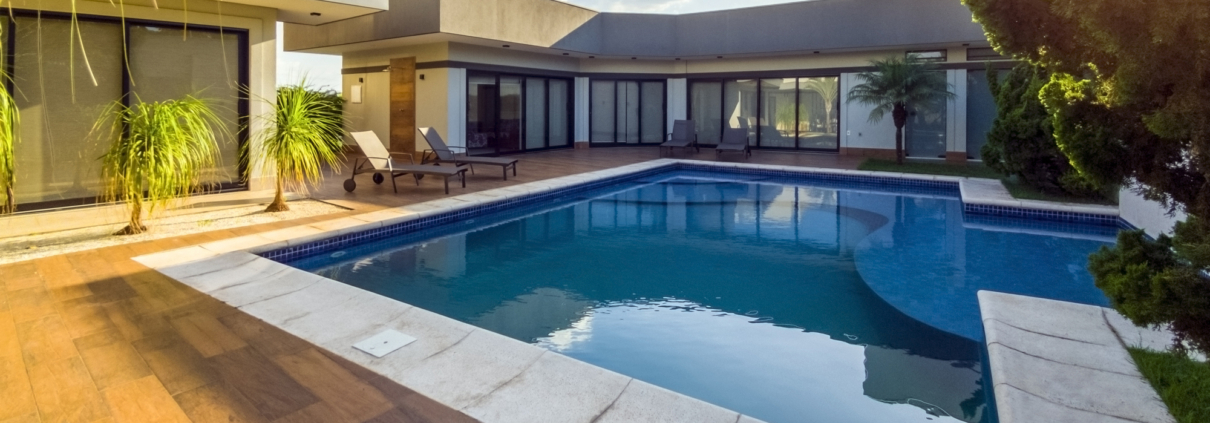Concrete vs. Fiberglass: Breaking Down Two Commonly-Used Pool Finishes
It’s easy to lose yourself in the design possibilities for your long-awaited backyard paradise. Pool tile, pool coping, and deciding between contemporary or naturalist aesthetics can easily make your head spin. Rest assured; we’re here to simplify things.
Before considering the nitty-gritty, you must choose one of two common pool finishes. This decision creates the foundation for the rest of your pool construction and dictates the frequency and type of pool maintenance you’ll need.
These two options are concrete and fiberglass. Read on for the pros and cons of each and which one is best for your pool construction.
The Luxury of Concrete
You don’t immediately think of “luxury” when you think of concrete, but you will when it comes to pool restoration and construction. It’s the pricier option, and for good reason.
Concrete opens the door for personalized pool construction. On-site pouring allows pool contractors to establish a precise shape and size for your backyard. Whether you want a kidney-shaped pool, a traditional rectangle, or a naturalist freeform, concrete can achieve it.
Additional benefits:
- Maximum durability withstands intense weather and regular use
- Concrete lasts up to 50 years
- Customize the texture of your pool finish
- Easy installation of deluxe features like fountains, waterslides, etc.
The major drawback of concrete pool finishes is the higher cost. Similarly, if leaks, cracks, or other damages appear, they can be more expensive to finish and require more complicated pool repair and restoration.
Low-Maintenance Fiberglass
Fiberglass may be less expensive, but this doesn’t mean it’s cheap. This pool finish is known for its durability. They feature gel coats designed to last the pool’s life, and their flexibility allows easy adjustments to shifts in the earth.
Fiberglass also creates a safer environment for swimming and aquatic sports. The smooth gel coats are gentle on the feet, producing no rough textures experienced with traditional pool plaster or concrete finishes.
Additional benefits:
- Reduced maintenance costs
- Efficient installation in as little as three to five days
- Saltwater system compatible
- Prevents algae growth
The major drawback of fiberglass pool finishes is the limit on customizability. While you can select a range of colors and general shapes, you won’t be able to create a wholly unique pool shape. Pool depth specifications are similarly limited.
Concrete or Fiberglass?
As you can probably tell, the right pool finish depends on your financial situation and intended use for the pool. The fiberglass is the clear winner if you’re looking for a lower cost upfront or want to simplify your design choices.
If you have a passion for aesthetics, concrete affords the most freedom to design the poolscape of your dreams that reflects your unique taste. Concrete is also more durable, making its higher cost worth it in the long run.
Fiberglass pools last an estimated 25-30 years, while concrete pools remain a luxurious home addition for up to 50 years. Consider that a complete pool restoration and repair will cost more than the occasional maintenance for concrete pool finishes.
Quality Pool Construction by So Cal Pool Plaster
Concrete or fiberglass, So Cal Pool Plaster handles them alongside other services like pool tile repair, pool coping, replastering, and more. Our pool contractors combine exemplary customer service with pool construction expertise to transform your home.
Bring your dream poolscape to life today! Choose between white and gray pool plaster, pebbled finishes, and finish blends, or create a personal mosaic with dynamic pool tile styles. If you have questions, our pool construction experts are here to help.
Call us today at 714-617-8182 or contact us online for a free estimate!




